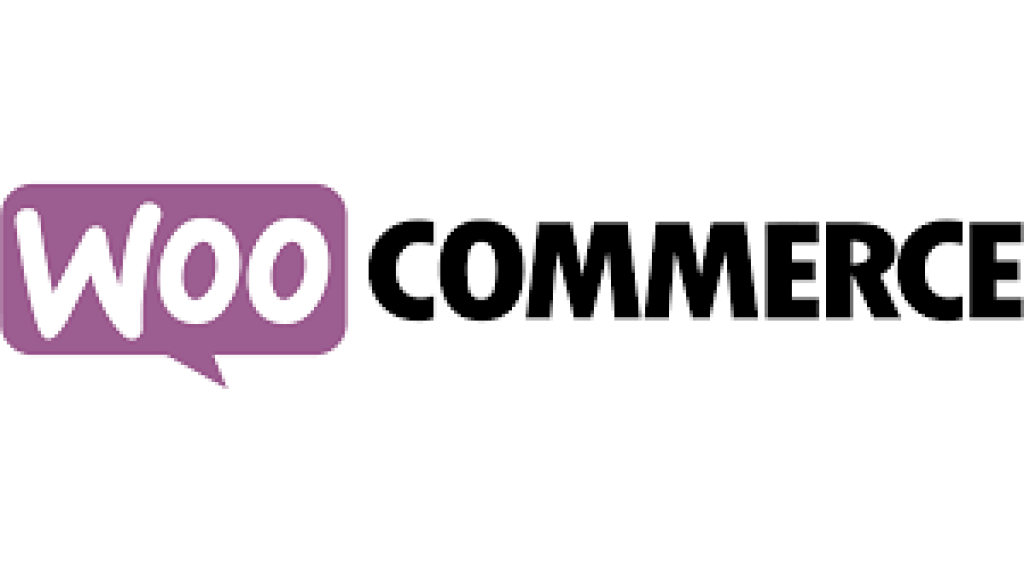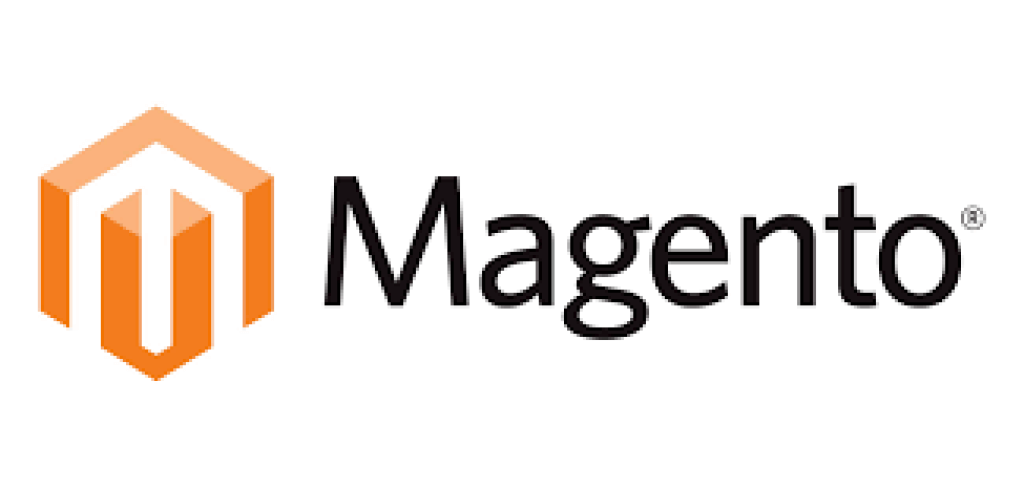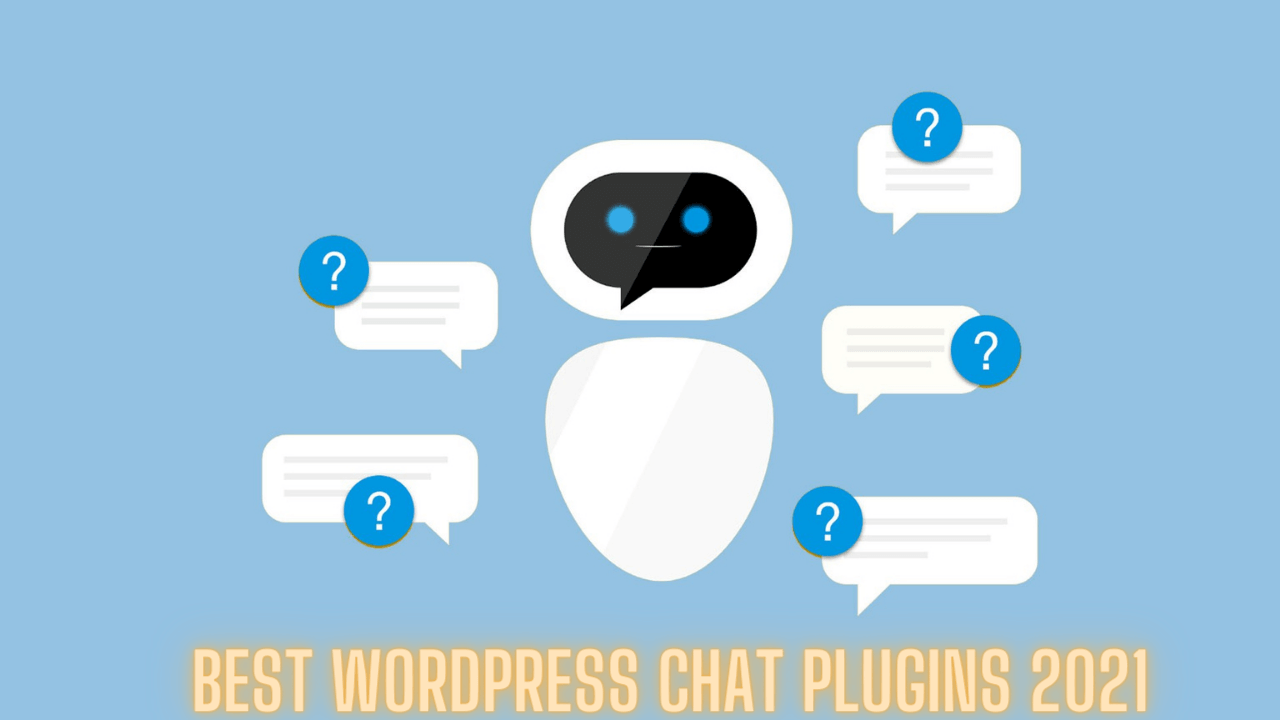Recent years have witnessed an explosive expansion in online retailing. Consumers increasingly prefer purchasing their items online, and businesses must choose the best e-commerce platform to keep pace with this fast-changing industry and grow their businesses exponentially. E-commerce worldwide is projected to reach $6.3 trillion by 2024 and $7.9 trillion by 2027.
E-commerce platforms provide businesses with an online marketplace for purchasing or selling products or services over the Internet. They help in setting up stores using them and managing them effectively. They have features like catalog management, ordering processing, payment processing, and managing customer relationships.
This guide will assist you in selecting seven of the Best E-commerce platforms and help you make an informed decision.
My Top Picks
Shopify

Shopify #1 Best E-Commerce Platform
Shopify is an extremely popular e-commerce platform that makes setting up and managing an online shop easy for enterprises of any size. Featuring an intuitive user experience with numerous customization options and seamless integration with third-party apps, as well as secure customer data storage to provide customers with a safe shopping experience, Shopify ensures an exceptional shopping experience for its users.
Key Features of Shopify
- User-Friendly Interface: Shopify offers an intuitive and straightforward user experience, making it accessible for people of different technical expertise levels.
- Customizable Themes: Select from an extensive range of professionally designed themes or create and modify your own for an eye-catching online store experience.
- Smooth Integration: Integrate smoothly with various payment gateways, shipping carriers, and third-party apps to enhance functionality and streamline operations.
- Robust Inventory Management: Administer your products easily by tracking inventory levels, organizing products into categories, and setting automatic notifications of low stock levels.
- Multi-Channel Selling: Expand your reach by selling across various channels; social media like Facebook and Instagram, as well as marketplaces like Amazon and eBay, can all help expand sales opportunities.
- Advanced Analytics: Gain valuable insight into your store’s performance with built-in analytics tools that enable you to track sales, monitor customer behavior, and make data-driven decisions.
Pros of Shopify
- Scalability: Shopify is designed for businesses of all sizes – from startups to established enterprises – providing flexible solutions that accommodate growth.
- Extended App Store: Shopify provides access to an expansive library of apps and plugins that enable you to expand its capabilities, and customize your store according to your unique requirements.
- 24/7 Customer Support: Take advantage of round-the-clock customer support via live chat, email, or phone, so that prompt assistance can always be found when needed.
- Security and Reliability: Shopify offers secure hosting, SSL certification, and regular backups to give you peace of mind that your store is protected against security threats and downtime.
- Shopify’s mobile optimization features responsive design themes and an efficient mobile app, providing customers browsing from smartphones or tablets a smooth shopping experience.
Cons of Shopify
- Transaction Fees: Although Shopify Payments offers its own payment gateway, third-party gateways incur additional transaction fees that go beyond standard processing costs.
- Shopify offers limited customization capabilities compared to other platforms for those with extensive coding knowledge, but customization may still be possible in some ways.
- Subscription Costs: Shopify’s monthly subscription fees can quickly add up for businesses with high transaction volumes or complex feature needs, especially those that have higher transaction volumes or advanced requirements.
- Learning Curve: While Shopify’s interface is user-friendly, newcomers may still experience a learning curve when navigating its features and settings.
Pricing:
- Basic Shopify: $29/month
- Shopify: $79/month
- Advanced Shopify: $299/month
Shopify remains a leading choice for e-commerce businesses due to its user-friendly interface, robust features, and scalability. However, it is crucial that businesses carefully assess all aspects of Shopify before making a final decision about whether it meets their business needs or not.
WooCommerce

WooCommerce #2 Best E-Commerce Platforms for WordPress
WooCommerce is an open-source eCommerce plugin designed for WordPress that is available free of charge and offers various options, including product catalog management and order processing with integrated payment integration. Featuring customization capabilities to offer businesses an exceptional shopping experience and compatibility with various shipping and payment gateways and other apps.
Key Features of WooCommerce
- Integration with WordPress: As a plugin for WordPress websites, WooCommerce makes the setup and management of an online store simple and manageable.
- Extensive Plugin Library: Access an extensive library of plugins and extensions designed to extend WooCommerce’s capabilities, from payment gateways and shipping calculators to marketing tools and inventory management systems.
- Flexible Customization: Customize your online store as much as you’d like with various themes, templates, and design features, plus the capability of editing code and adding customized features.
- WooCommerce’s high scalability allows businesses to start small and gradually build an online presence over time, supporting unlimited products, categories, and variations.
- Built-In SEO Features: Take advantage of built-in SEO features and tools to optimize your store for search engines, including customizable URLs, meta tags, and sitemaps.
- Comprehensive Reporting: Gain greater insights into your store’s performance with comprehensive reports on sales, orders, customer behavior, and more, providing valuable data that enables informed business decisions.
Pros of WooCommerce
- WooCommerce Cost-Efficient: WooCommerce itself is free, making it an economical solution for businesses of any size. However, costs related to web hosting, domain registration, and premium plugins/extensions may arise.
- Flexibility and Customization: WooCommerce’s open-source nature and extensive plugin library give it unmatched flexibility and customization options, enabling you to tailor your store to suit the unique requirements of each business.
- Integrating with WordPress: If you already know WordPress, transitioning to WooCommerce should be easy, as both platforms feature user-friendly interfaces and administrative dashboards for seamless management.
- Community Support: Take part in an active, growing community of developers, designers, and users who contribute to the continuous development and improvement of WooCommerce while offering valuable assistance and resources.
- Scalability: WooCommerce has been built to accommodate businesses of any size – from start-ups and entrepreneurs to established enterprises – by offering the flexibility needed to grow product catalogs, customer bases, and revenue streams over time.
Cons of WooCommerce
- Technical Expertise Necessary: While WooCommerce is user-friendly, setting up and managing a WooCommerce store may require basic technical knowledge for hosting, customization, and troubleshooting purposes.
- Dependence on WordPress: As WooCommerce is a plugin of WordPress, your store’s performance and security depend heavily on its health and stability.
- As your store expands in size and complexity, it may experience performance issues like slower page load times. If your hosting environment isn’t optimal for WooCommerce, these issues could further complicate matters.
- Additional Costs: Although WooCommerce itself is free, additional expenses such as web hosting and domain registration fees, premium themes, plugins/extensions, and third-party services to unlock additional features and functionalities may arise.
Pricing of WooCommerce
- WooCommerce plugin: Free
- Additional costs for hosting and domain registration
Overall, WooCommerce provides an easy and flexible e-commerce solution for businesses using WordPress for online stores. By carefully considering its pros and cons, it can help determine if WooCommerce fits with your specific business requirements and goals.
Magento

Magento is the #3 Best E-Commerce Platform
Magento is an elegant, flexible e-commerce platform that provides both scalability and customization features, making it suitable for businesses with complex product catalogs and large customer bases. Magento boasts excellent inventory management features such as SEO optimization as well as integration with third-party applications; however, it requires technical experience to set up and maintain.
Key Features of Magento
- Intuitive Interface and Scalable Architecture: Magento’s robust and scalable architecture makes it suitable for businesses of all sizes, from startups to multinational conglomerates.
- Magento offers Comprehensive customization capabilities. Experience unparalleled customizability capabilities with Magento, including the ability to modify code, create customized themes, and integrate third-party extensions to tailor your store according to your unique specifications.
- Advanced Marketing Tools: Leverage your store with marketing features such as promotions, discounts, loyalty programs, and targeted advertising to draw in customers and drive sales.
- Scalability and Performance: Magento’s flexible architecture enables it to manage large product catalogs, high traffic volumes, and complex e-commerce operations with optimal performance and reliability in mind.
- Multi-Store Management: From one Magento installation, efficiently manage multiple online stores in multiple languages and currencies with diverse product catalogs – streamlining operations while decreasing overhead expenses.
- Community and Enterprise Editions: Magento provides two editions – Community (free open-source software) and Enterprise (paid, with enterprise features and support) to meet different budgetary and business requirements.
Pros of Magento
- Flexibility and Customization: Magento’s customizable features give businesses unparalleled freedom to design unique online stores tailored to meet specific business requirements.
- Scalability and Performance: Magento’s flexible architecture and advanced caching mechanisms enable it to effortlessly handle large product catalogs, heavy traffic volumes, and complex e-commerce operations.
- Solid Community Support: You are welcome to join the vibrant Magento community of developers, designers, and merchants who contribute to its ongoing development and improvement by offering support services, resources, and extensions that bring great value.
- Magento comes equipped with an array of advanced features and functionalities, such as multi-store management, marketing tools for targeted advertisements, in-built SEO optimization features, and comprehensive analytics and reporting features.
- Magento Enterprise Edition Delivers Additional Support: If your business requires additional assistance with its e-commerce operations, Magento Enterprise Edition offers premium features, dedicated support services, and service-level agreements (SLAs) to ensure its success and stability.
Cons of Magento
- Magento can be complex and difficult to Learn: Magento’s extensive feature set and customization options may bring difficulty in adapting and learning, particularly for newcomers with limited technical know-how.
- Cost of Ownership: Although Magento Community Edition is free for businesses to implement, larger enterprise implementations may incur substantial costs associated with hosting, development, customization, and third-party extensions – especially those that utilize Enterprise Edition.
- Magento is Resource Consuming: Magento’s robust architecture and feature-packed nature necessitate a hosting environment optimized to deliver optimal performance and stability, necessitating sufficient server resources as well as optimization to guarantee peak performance and stability, leading to potentially higher hosting costs.
- Technical Dependence: Administering and running a Magento store often requires regular technical assistance, including updates, security patches, performance optimization, and troubleshooting.
Pricing of Magento
- Magento Open Source: Free
- Magento Commerce: Pricing varies based on requirements
Magento is mainly for large businesses that wish to develop and manage sophisticated, scalable online stores with advanced features and customization options.
BigCommerce

BigCommerce #4 Best E-Commerce Platform
BigCommerce is an eCommerce platform tailored to fit businesses of any size. It provides several functions, including product catalog management, shopping cart abandonment, and recovery features, integration with various shipping and payment methods and gateways, and robust analytical/reporting tools to keep track of performance metrics and make informed decisions based on data.
Key Features of BigCommerce
- Enterprise-Grade Scalability: BigCommerce offers enterprise-grade scalability that makes it suitable for businesses of all sizes, from startups to multinational enterprises.
- Multi-Channel Selling: Expand your reach and boost sales by selling across various channels, such as an online store, social media platforms, and marketplaces like Amazon or eBay.
- Advanced Marketing Tools: It has advanced marketing features, like promotions, discounts, abandoned cart recovery, and product recommendations, to engage and attract customers while driving sales.
- Comprehensive Analytics: It provides invaluable insight into your store’s performance with comprehensive analytics and reporting tools that enable you to track sales, monitor customer behavior, and make data-driven decisions.
- Responsive Design: It gives an exceptional shopping experience across devices using BigCommerce’s responsive design templates that adapt to various screen sizes and resolutions.
- Secure and Reliable: Rely on secure hosting, SSL certification, and regular backups to safeguard against security threats while guaranteeing high uptime and availability for your store.
Pros of Big Commerce
- User-friendly interface: BigCommerce stands out by providing an intuitive dashboard and user-friendly interface, making it simple for merchants to set up, manage, and customize their online stores without the need for extensive technical know-how.
- Scalability: BigCommerce’s highly scalable nature allows it to support large product catalogs, high traffic volumes, and complex e-commerce operations. – as your business expands, it will ensure optimal performance and reliability for you and your customers.
- Multi-Channel Selling: With built-in support for selling on multiple channels, BigCommerce makes it possible for merchants to reach customers wherever they may be and increase visibility while driving sales.
- Comprehensive Support: BigCommerce offers dedicated customer support, resources, and documentation to assist your business with using its platform, troubleshooting issues that arise on it, and optimizing its value to you and your clients.
- BigCommerce boasts an array of built-in features and functionalities, such as payment gateways, shipping carriers, and third-party apps – thus eliminating the need for plugins or extensions.
Cons of BigCommerce
- Cost: While BigCommerce provides competitive pricing plans, businesses may incur additional expenses as their store grows and requires more resources. While BigCommerce provides competitive plans for basic features and customizations, more advanced features, customizations, or third-party apps may incur additional expenses as part of its offering.
- BigCommerce customization may be limited compared to other platforms for advanced design and functionality requirements.
- Learning Curve: Although BigCommerce is designed for ease of use, new merchants may experience an initial learning curve when it comes to understanding its features, settings, and integrations; especially if they’re new to e-commerce.
- Reliance on Platform: As BigCommerce is a hosted platform, merchants have less control over the infrastructure of their store’s infrastructure and may be subject to platform updates, downtime, and restrictions imposed by the provider.
Pricing of Big Commerce
- Standard: $29.95/month
- Plus: $79.95/month
- Pro: $299.95/month
BigCommerce remains a top choice among merchants looking for an easily scaled e-commerce platform with multichannel selling capabilities and comprehensive support.
Wix

Wix
Wix is a well-known e-commerce platform that is characterized by its user-friendly drag-and-drop website builder, which makes it the perfect option for people who are new to the world of selling online. With Wix, users can quickly build stunning websites that incorporate e-commerce functions and start selling their products as well as services. The user-friendly interface and the extensive marketplace for apps further increase its appeal. It allows users to modify their online store with ease.
Key Features of Wix
- Wix offers an easy website-building experience. Wix provides an intuitive drag-and-drop website builder, enabling users to easily build and customize online stores without needing any coding knowledge.
- Select from an impressive array of professionally designed templates to build an eye-catching online store that suits your brand identity.
- Integrate E-Commerce Functionality: Utilize Wix’s seamless e-commerce functionality, such as product listings, shopping carts, and the checkout process, to start selling products or services online.
- Mobile Optimization: Wix’s mobile-responsive design will ensure a positive shopping experience for mobile users by automatically adapting your website’s layout and content according to different screen sizes.
- Wix App Market: Wix offers an expansive range of apps and plugins in its Wix App Market to expand the functionality of your online store, from marketing tools to analytics to payment gateways and shipping options.
- SEO Tools: Optimize your online store for search engines using built-in SEO tools and features, such as customizable meta tags, sitemaps, and URL structures, to increase visibility and drive organic traffic.
Pros of Wix
- User-Friendly Interface: Wix’s intuitive user interface and drag-and-drop editor make it easy for people of all skill levels to create and manage online stores without needing technical expertise.
- Beautiful Design Templates: Wix offers an impressive range of professionally designed templates, all fully customizable, to give users the power to build attractive online stores that stand out from their competition.
- All-in-One Platform: With Wix, users can build and manage online stores effortlessly while accessing an array of features and services—domain registration, hosting space, marketing tools, and customer support—all conveniently provided within one platform.
- Affordable: Wix offers competitive pricing plans with both free plans with limited features and premium plans with additional customization features and customization options, making Wix accessible to businesses of all sizes and budgets.
- Wix provides exceptional customer support via email, phone, and online chat for all their users, with access to documentation, tutorials, and forums designed to address issues quickly and maximize the value of their Wix subscriptions.
Cons of Wix
- Limited Customization: While Wix offers an expansive array of design templates and customization options, some users may find its customization capabilities limited compared to other e-commerce platforms, especially for complex design and functionality needs.
- Dependency on Wix: Due to Wix being a hosted platform, users have limited control over their online store’s infrastructure and may be subject to platform updates, downtime, and limitations imposed by its provider.
- Transaction Fees: Wix offers various payment gateways for accepting online payments, but users may incur transaction fees depending on which gateway and pricing plan are selected for processing sales transactions.
- Scalability: While Wix may be suitable for small to mid-sized online stores, larger enterprises with complex e-commerce requirements or high sales volumes may find its scalability limited.
Pricing of Wix
- Business Basic: $23/month
- Business Unlimited: $27/month
- Business VIP: $49/month
Wix remains a popular choice for users looking for an accessible, cost-effective e-commerce platform to build and manage online stores.
3dcart

3dCart
3dCart is a complete online store that is suited to companies of all sizes, providing an extensive set of features that make online selling easier. With its easy-to-use interface and sophisticated functions, 3DCart empowers entrepreneurs to develop websites and run them efficiently.
Key Features of 3dCart
- Comprehensive E-Commerce Platform: 3dcart provides an all-inclusive e-commerce platform with numerous features designed to assist businesses in building and running successful online stores.
- Flexible Customization: With 3dCart, users can tailor their online stores to meet the unique needs and branding preferences of their business, such as by customizing themes, layouts, and product pages.
- Built-In Marketing Tools: 3dcart provides businesses with numerous built-in marketing tools, such as SEO optimization, email marketing, social media integration, and promotional features, to attract and retain customers.
- Advanced Reporting and Analytics: Gain invaluable insight into your store’s performance with advanced reporting and analytics tools that help track sales, monitor customer behavior, and make data-driven decisions.
- Secure Payment Processing: 3dcart offers secure payment processing solutions with support for multiple payment gateways, providing customers with peace of mind while merchants accept payments safely.
- Scalability: 3dcart offers flexible support and services that scale with businesses of any size or industry, providing flexibility and support that ensures their growth.
Pros of 3dCart
- Easy to Use: 3dcart offers an intuitive, user-friendly dashboard and user interface, making it simple for anyone without technical expertise to quickly set up, manage, and customize online stores without needing specialist knowledge or assistance from technical support services.
- Customized Options: 3dCart provides users with extensive customization options to meet their online store’s individual needs, from theme selection and layout design to product pages and product thumbnails, product images, and much more.
- 3dcart offers numerous marketing tools, including SEO optimization, email marketing, social media integration, and promotional features, to help businesses attract and keep customers.
- Scalability: 3dcart can easily grow with your business, providing flexibility and support for companies of all sizes and industries – from startups to multinational enterprises.
- Secure Payment Processing: 3dcart offers secure payment processing solutions through multiple payment gateways, giving customers confidence when shopping and merchants an effective method for accepting payments safely.
Cons of 3dCart
- Cost: While 3dCart offers competitive pricing plans, businesses may incur additional expenses for advanced features, customization, and third-party integrations, which may reduce affordability overall.
- Learning Curve: While 3dcart is designed for easy use, new users may experience an initial learning curve when navigating its features and settings; especially those new to e-commerce.
- 3dCart’s Design Templates May Be Limited: Although 3dCart offers customization features, some users may find its design templates limited when it comes to advanced design and functionality requirements.
- Customer Support: Though 3dcart provides customer support via email, phone, and live chat, some users may find the level of assistance offered inadequate compared to other e-commerce platforms.
Pricing of 3dCart
- Startup Store: $19/month
- Basic Store: $29/month
- Plus Store: $79/month
- Pro Store: $229/month
Even so, 3dcart remains an attractive choice for businesses seeking an all-in-one e-commerce platform with versatile customization features, built-in marketing tools, and secure payment processing capabilities.
Squarespace

SquareSpace
Squarespace is more than a web-based website builder; it also offers an easy online store platform. Using its intuitive drag-and-drop interface and selection of templates for creating appealing online stores. Squarespace features basic e-commerce functions, including catalog management for products as well as integration with payment processors, but does not offer more advanced features such as shipping or inventory management.
Key Features of Squarespace
- Elegant Templates: SquareSpace offers a selection of professionally designed templates that are both visually striking and mobile responsive, giving users the power to build beautiful online stores that engage customers.
- Integrated E-Commerce Functionality: Integrate seamless e-commerce functionality into your SquareSpace website, including product listings, shopping cart, and secure checkout process, to start selling products or services online.
- Squarespace features an intuitive drag-and-drop website builder, making it simple for users to easily build and customize online stores without coding knowledge.
- Optimize Your SquareSpace Site for Search Engines: Optimize your SquareSpace website for search engines using its built-in SEO tools and features, such as customizable meta tags, sitemaps, and URL structures, to increase visibility and drive organic traffic.
- Integrating Social Media: Increase brand recognition and connect with customers on social media by seamlessly incorporating feeds, sharing buttons, and analytics from popular social platforms into your SquareSpace website.
- Integrated Analytics: Get valuable insights into your store’s performance using integrated analytics and reporting tools, allowing you to track sales, monitor customer activity, and make data-driven decisions to optimize its e-commerce strategy.
Pros of Squarespace
- Beautiful Design Templates: SquareSpace offers an extensive collection of professionally designed templates that are both visually stunning and mobile responsive, enabling users to build visually striking online stores that set themselves apart from competitors.
- SquareSpace’s user-friendly dashboard and intuitive interface make it effortless for people of all skill levels to set up, manage, and customize their online stores without the need for technical expertise.
- SquareSpace offers an all-in-one platform: SquareSpace allows users to easily create and manage online stores while also taking advantage of additional services such as domain registration, hosting, marketing tools, and customer support, all from one convenient platform.
- SquareSpace Provides Comprehensive E-Commerce Functionality: SquareSpace offers integrated e-commerce functionality, such as product listings, inventory management, and secure checkout processes, making it simple for users to start selling goods or services online.
- Customer Support: Squarespace offers comprehensive customer support through email, phone calls, and live chat as well as extensive documentation, tutorials, and forums that enable users to address any issues quickly and maximize the return on their subscription.
Cons of Squarespace
- Limited Customization: While SquareSpace provides an impressive variety of design templates and customization options, some users may find its customization capabilities more limited compared to other e-commerce platforms for more complex design or functionality requirements.
- Transaction Fees: SquareSpace charges transaction fees on all sales conducted through its platform, which can add up and significantly erode profitability over time, particularly for businesses with large volumes of transactions.
- SquareSpace’s hosted platform makes users dependent on it; therefore, users have less control over their store infrastructure, potentially being subject to updates, downtimes, and limitations imposed by its provider.
- Scalability: Squarespace may be suitable for small to mid-sized online stores; however, businesses with complex e-commerce requirements or high-volume sales may find its scalability limited compared to other solutions available.
Pricing of Squarespace
- Personal: $12/month
- Business: $18/month
- Basic Commerce: $26/month
SquareSpace remains a top choice among users looking for an elegant, user-friendly e-commerce platform to set up and run their online stores.
Conclusion
Selecting an ideal platform for your online store is paramount to its growth and expansion. Of the seven e-commerce platforms we’ve listed above, each one provides different capabilities and meets different business requirements.
When making your selection, consider aspects such as scalability, flexibility, customization, and customer service. when making your choice – this way, you will be sure that you select one that matches up perfectly with your requirements and the requirements of the business store.
FAQ
1. What are the top 7 e-commerce platforms?
The top 7 e-commerce platforms include Shopify, WooCommerce, BigCommerce, Magento, Wix, 3dcart, and SquareSpace.
2. Which e-commerce platform is best for beginners?
Shopify and Wix are known for their user-friendly interfaces and easy setup processes, making them ideal choices for beginners.
3. What is the difference between hosted and self-hosted e-commerce platforms?
Hosted e-commerce platforms like Shopify and BigCommerce provide all-in-one solutions, including hosting, while self-hosted platforms like WooCommerce and Magento require users to find their hosting provider.
4. Which e-commerce platform offers the most customization options?
WooCommerce and Magento are known for their extensive customization options, allowing users to modify code and tailor their online stores to their specific needs.
5. How do I choose the right e-commerce platform for my business?
Consider factors such as your budget, technical expertise, scalability needs, and desired features when choosing an e-commerce platform that aligns with your business goals.
6. Can I switch e-commerce platforms later, if needed?
Yes, many e-commerce platforms offer migration tools or services to help you switch from one platform to another if your business needs change over time.
7. Which e-commerce platform offers the best SEO capabilities?
WooCommerce and Shopify are known for their robust SEO capabilities, offering features such as customizable URLs, meta tags, and sitemaps to help improve search engine rankings.
8. What types of payment gateways are supported by e-commerce platforms?
E-commerce platforms typically support a wide range of payment gateways, including popular options like PayPal, Stripe, Square, and Authorize.Net, among others.
9. How do I ensure the security of my online store and customer data?
E-commerce platforms prioritize security and offer features such as SSL certification, secure payment processing, and regular security updates to protect your online store and customer data from potential threats.
10. What kind of customer support is available for e-commerce platforms?
E-commerce platforms typically offer a variety of customer support options, including email, phone, live chat, and community forums, as well as documentation and tutorials to help users troubleshoot issues and learn more about the platform.






Hello! Company Political Science a completely new scientific political system, which has never been seen before in the history of mankind. The document contains 10 pages of detailed description. You can buy this sex-free document for 950$, payment bitcoin. To obtain and pay for it, go to the proxy-tunneled self-hosted site, click Visit Site, register without using personal data, make payment and download the document. Thank you in advance.
Self-hosted website: https://htphlyw.localto.net
If pages don’t load – refresh.